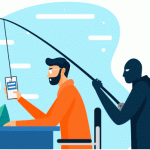How to Secure Chromecast

Chromecast is definitely an amazing device when it comes to modern entertainment. Though, all the convenience of being to cast your mobile screen on your TV does make you wonder – how secure is Chromecast actually?
Well, while there might be some concerns, you don’t need to worry that much. Making your device more secure isn’t really difficult. In fact, we’ll show you exactly how to secure Chromecast in this 4-minute article.
“What Chromecast Security Issues Should I Know About?”
One of the more common Chromecast security problems is other people being able to use your device to cast to your screen. At least a few people have complained about that issue online. What’s more, Chromecast has been reported to crash routers, but that problem has been solved by Google.
Also, it was recently revealed that Chromecast – alongside other streaming devices – can actually fall prey to a “retro” hack that can expose it to DDoS-like attacks. Cybercriminals could allegedly even get Chromecast and Google Home to leak info about your WiFi network, and use that data to geo-locate your device. Luckily, Google eventually worked on a solution for that too.
Here’s How to Secure Chromecast
1. Turn Off “Guest Mode”
Chromecast’s “Guest Mode” can come in handy if you want to use the device without connecting it to a WiFi network, but it’s pretty risky to do so.
Basically, “Guest Mode” will prompt Chromecast to emit a special WiFi beacon. When it does that, a device with a Chromecast-enabled app can detect said beacon, connect to Chromecast, and start casting on your screen.
Yes, Chromecast generates a 4-digit PIN which the guest device will need in order to cast to your screen. However, when the device in question tries to connect to Chromecast, it will be automatically sent that PIN number through an inaudible audio tone. Only if that audio tone fails will the guest device owner have to get the PIN and input it manually.
To turn off “Guest Mode,” do the following:
- Start your Google Home app.
- Go to “Devices” in the top right corner.
- Look for your Chromecast, and tap the card menu in the top right corner.
- Go to “Guest Mode,” and turn it off.
2. Only Use Secured Networks
Ideally, you should only use Chromecast on your home network, and not on any public or unsecured networks (and that includes hotel WiFi). Unsecured networks can be dangerous because hackers could easily monitor their traffic.
In terms of securing your own network, you should use WPA2 instead of WEP. WEP isn’t very safe since its passwords can be brute-forced. And while WPA2 has a network vulnerability (the KRACKs attack), it will be fixed when WPA3 comes around towards the end of 2018. At the moment, WPA2 is still a safer bet than WEP.
In case your router is connected to a major network (like multiple routers are at an office, for example), you should try to find out if it’s set to “extend” the original network it’s connected to. If it is, any other devices that are connected to the major network through a router can communicate with your Chromecast. Your best bet is to contact the router’s manufacturer about this.
Besides that, here are some other ways to protect your network that can help boost your Chromecast’s security:
- Make sure your router’s firmware is up-to-date. Updates are usually installed or you’re notified about them when you log into the web-based user interface or when you use the manufacturer’s app. If that doesn’t happen, you can usually find the “Update” option in the “Settings” menu.
- Change your router login credentials. “admin/admin” or “admin/password” just won’t cut it. Don’t forget – since you can’t directly secure Chromecast with a password, you have to secure your router with a strong password instead. Our recommendation is to make it long, alternate lowercase and uppercase letters, and use numbers and special symbols.
- If your router uses WPS (WiFi Protected Setup), turn it off. Using a PIN number instead of a more complex password isn’t very safe since PINs are much more susceptible to brute-force attacks.
- Consider turning your WiFi off when you are not home. Some routers allow using WiFi Scheduling to make that more convenient.
- Disable “Remote Management” or “Remote Administration” features if they are enabled on your router.
3. Use a VPN Service
With a VPN, you can go the extra mile and protect your router traffic to secure your Chromecast even more. Basically, all your WiFi traffic will be encrypted, so nobody will be able to snoop in on it and steal any sensitive information – like what you’re watching or what your geo-location is, for example. Plus, a VPN would also help you access geo-blocked apps and content, which you can then cast on your display.
Now, Chromecast doesn’t have direct support for VPN software, but you can set up a VPN on your router instead. This way, whenever your Chromecast connects to your WiFi, it will be protected by the VPN.
CactusVPN Is the Right Service for the Job!
CactusVPN can easily safeguard all your online traffic and data since it relies on powerful AES encryption. Our service also offers unlimited bandwidth, high-speed servers, a Killswitch, and a clear no-log policy.
While you can set up CactusVPN on multiple types of routers, our recommendation is to use DD-WRT or Asus routers since they work with OpenVPN, a very secure VPN protocol.
Special Deal! Get CactusVPN for $3.5/mo!
And once you do become a CactusVPN customer, we’ll still have your back with a 30-day money-back guarantee.
Conclusion
While Chromecast might not have huge security flaws, it never hurts to take some precautions. If you follow our advice on how to secure Chromecast, you should be able to enjoy some nice peace of mind, as well as better protect your online data and traffic at the same time.



